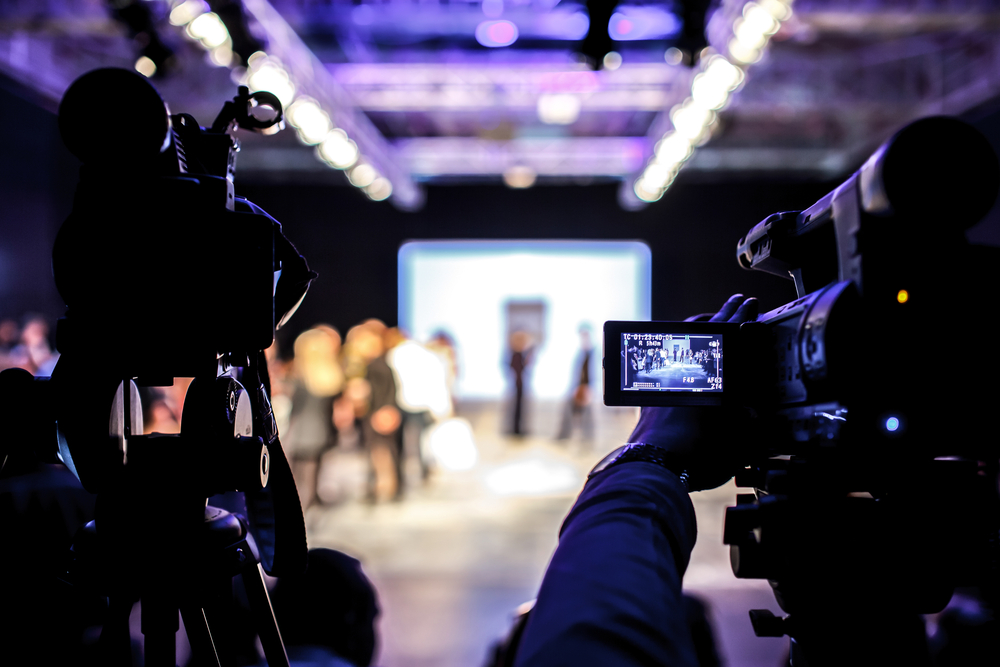This year the BBC Global News India Upfront invited industry stalwarts and market leaders to a virtual conclave to understand how to build resilient brands with healthy brand association during these tumultuous times. Here are some of the key highlights from panel discussions.
On the vital role of news media in brand building and where the BBC stands Vikram Sakhuja, Group CEO Media & OOH, Madison Media talked to Alistair McEwan, SVP, Commercial Development, APAC of BBC Global News.
McEwan outlined the key differences, “The essential difference of news brands as compared to entertainment brands is the heightened engagement they deliver, where the audiences are in a mindset to learn and understand the information they are consuming. The BBC has been in the news for 90 odd years, adhering to fundamental values such as:
Trust with our audiences in the way we impart the facts
Credibility in the way we cover the news by way of our global footprint and our commitment to fact-based journalism
Impartiality that we report without fear or favour, we are non-partisan, we hold no political bias and we are impartial at our core. That’s where the BBC stands out in the news category.”
Talking about BBC’s role in the English news genre, McEwan said, “We conduct no political grandstanding, there’s no particular position we take, we report the facts as we see them, it’s very important in a market which is very well served not just in local languages but increasingly in English language. [highlight color=”yellow”]Within the Indian market it’s not just about telling impartial story but it’s also finding your audiences, finding your voice. For every audience, there is a service they will look for and in India the BBC competes for quality audiences with quality content. [/highlight]
On the role of linear TV viewership and whether digital is getting more consumption McEwan highlighted, “We have done an analysis in terms of how audiences consume advertising via the different medium that we publish and broadcast from. Understandably, that relationship between the two is absolutely critical and this comes through a study we did couple of years ago called ‘Ad Impact’ where we measured quite deeply how audiences consume and what that means for the brands. What we tend to see with Television news, it brings in audiences for breaking news and bulletins particularly within the rhythm of their working lives.
Whereas, digital slightly differs here. It really enables deeper analysis and updated reporting on evolving stories that are breaking and the analysis pieces and story updates are really where BBC’s mobile web and app products make a difference because they enable audiences to connect in different ways, with a higher level of frequency, dipping in, dipping out and actually it also allows a deeper level of engagement.
Ultimately this translates into brand effects and benefits for advertisers, based around mid to lower funnel impacts, where news differentiates from other genres. Digital caters for much going much deeper down the marketing funnel into ‘consideration’ and ‘recommendation’ towards the path to purchase and actually it’s about combining the two. TV will always build familiarity and awareness at its core, whereas digital actually elevates engagement around content and through BBC StoryWorks we create commercial on behalf of brands, taking our audiences further down the funnel.”
McEwan concluded, “I would always caution Brands on prioritising short-term gains over longer-term values, this approach will come back to bite, hurting brand equity and the foundation of core sales.”
Another immense pressure on brands in this VUCA world has been the rising intolerance and the boycott culture.
BBC’s senior journalist and presenter Devina Gupta highlighted how the famous Indian jewellery brand Tanishq had to withdraw an advertisement featuring an interfaith couple after a right-wing backlash on social media last year. She asked whether this puts pressure on brands to work around their communication strategy.
“From an intolerance which is building, the most important thing as a company that you have to do is to first within the company ensure that there is no tolerance for such intolerance. And also ensure that we develop a culture that is very diverse and inclusive. I think once the organization’s DNA and culture are able to handle any kind of communication, that is when it is taking a very strong stance. If you are going on the fringes then scenario plan so that you know you already have some strategy to work on that.[highlight color=”yellow”]I will continue to emphasize on your culture and DNA being important as a company and keep reflecting in your communication, said Mansi Tripathy, VP Commercial Lubricants, Shell APAC & Middle East.[/highlight]”
In a session on Green Growth BBC’s Devina Gupta also asked RC Bhargava, Chairman, Maruti Corp. the way forward for economic recovery in the post-pandemic era.
“I think the covid crisis is temporary, its impact will last 2-3 years. What is important is that even before the COVID, manufacturing in India wasn’t as competitive as was necessary because of which jobs were not coming and business wasn’t being done. I think the competitiveness of manufacturing in India is still not quite there. So business becoming more competitive in India is important and we should all be discussing how do we become more competitive, said RC Bhargava, Chairman, Maruti Corp.”
On the advent of Cookie-less world, BBC’s SVP Commercial Development, APAC – Alistair McEwan spoke to Hitu Chawla, CMO of Microsoft India, and Nandini Dias, CEO of Lodestar UM on:
The meaning of changing landscape to advertisers in Cookie-less world
Nandini Dias said: “For the last 20-25 years third-party cookies have been the main stay across many key Ad-tech and Mar-tech applications. And cookies collected user information like location, device type and tracked user’s behaviour on the site. There’s no doubt the industry will see fundamental changes in the way marketeers connect to consumers today. The clients playing with the digital are well aware of the vital changes in the eco-system and while it is difficult to envision all these changes the significant questions are:
- Would we be able to use targeted marketing?
- Would the data management platforms be able to create cohorts that can later be used for activation or retargeting?
- Would frequency capping be possible on the number of times the ad is shown to the user in digital marketing?
- Whether alternate routes will have the scale to match the cookie provided or allow the same level of personalisation?
We all know that there have been real concerns about privacy, transparency, data ethics so everyone understands the need to change. We at agencies of course hope that it doesn’t impact the digital marketing space.”
What do brands like Microsoft want to see from publishers with regards to addressability solutions and what does gold class looks like going forward from a publisher’s brand perspective?
Hitu Chawla said, “I strongly believe the first-party data relationship needs to be enhanced to build a win-win situation for everyone because if we get that right it will help being rooted in consumer trust. There are four areas I’d rather suggest:
1. Most importantly, the publisher needs to seek permission and collect data responsibly. They need to ask for consent directly from the user upfront, not as fine print at the bottom which gets missed and people don’t understand. We need to be ethical about how we are collecting that information.
2. Publications, agencies and brands need to hire for privacy. It is necessary that you have those accessories who are well versed in regulatory requirements. If you are a multinational you’ll be transacting in multiple countries so you need to have experts who understand what those regulatory requirements are. At the same time, know what it means to have experience with responsible marketing approaches like first-party data collection and base measurement.
3. Both publications and brands that are housing the data they need to develop identity and access management practices for individuals according to their roles. Security access levels need to be determined for different data categories. That’s very critical and gets missed out.
4. Lastly, as a brand we need to be mindful of how we engage with our audience. Place ads only with publishers who have a built-in consent-driven relationship with their first-party users. If audience signals are restricted due to cookie limitations, use the context of your ad to tailor the message instead.
In the end, we need to embrace the new trust-led ecosystem because it automatically collates addressability and authentication at the core.”
You can watch all session recordings on BBC Global News India Upfront.



